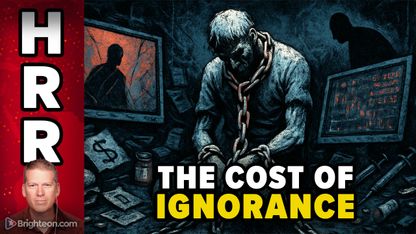
A review in the most recent issue of Med Check, a bimonthly bulletin published by the non-profit organization Japan Institute of Pharmacovigilance, also found that the COVID-19 vaccines raise a young person's risk of death by as much as 40 times.
The researchers cited three reports of individuals between the ages of 20 and 29 who died several days or weeks after getting the COVID-19 vaccine. One of the vaccine deaths was a 27-year-old professional baseball player who collapsed less than two weeks after he got vaccinated. He died after one month in the hospital. (Related: Japan Health Ministry issues HEART WARNING for Pfizer and Moderna covid vaccines.)
The Japanese Ministry of Health, Labor and Welfare has received a total of 1,308 reports of deaths after COVID-19 vaccination as of Oct. 15. Japanese government policy dictates that reports of vaccine deaths and injuries only need to be reported if they occur within 28 days after vaccination.
The study noted that this policy strongly suggests that the number of people in Japan who have died due to the COVID-19 vaccine is likely significantly higher than the original report. The number of deaths strongly suggests that the risk of a fatal reaction to the COVID-19 vaccine is significantly greater than the danger the coronavirus itself poses for younger adults.
According to the data, younger adults have a 0.6 to 0.8 per one million chance of dying from COVID-19 in Japan. By contrast, this same group of people has a 3.2 per one million chance of dying from the COVID-19 vaccine.
Japan is one of the world's most vaccinated nations. As of press time, 78 percent of the population is fully vaccinated. The study shows that forcing the remaining 22 percent of the population to get vaccinated will result in even more deaths than if they just remained unvaccinated.
Japanese government ignores science, pushes for vaccine boosters
Despite the data proving that remaining unvaccinated is safer – especially for younger people – the Japanese government is still planning to distribute and mandate the administration of COVID-19 vaccine booster doses.
Prime Minister Fumio Kishida told the Japanese parliament that his government's priority right now is to examine the evidence regarding the effectiveness of existing COVID-19 vaccines against the post-vaccine omicron variant.
"We are hoping to determine the effect of the existing vaccines on the omicron strain as soon as possible, and then show the scope and method of moving up booster shots," said Kishida.
Other Japanese scientists are already warning the government that the COVID-19 vaccines will be significantly less effective against the omicron variant.
A team of researchers headed by Kyoto University professor and epidemiologist Hiroshi Nishiura told the Health Ministry's advisory board that the omicron variant is several times more likely than the post-vaccine delta variant to escape the so-called protection built by the COVID-19 vaccines.
Nishiura admitted that the omicron variant could spread more easily in highly vaccinated countries like Japan. "It's very like that [the omicron variant] could spread in a country like Japan where vaccine uptake is high," he said.
As part of Japan's post-pandemic economic recovery plan, local government areas are being told by the national government to prepare to administer booster vaccines. This is being done even though the Japanese government has yet to come out with a decision to recognize the effectiveness of the vaccines against the omicron variant.
"We will bring the Japanese economy back on a recovery track as soon as possible and open a path toward a new society in the post-pandemic era," said Kishida.
Learn more about the latest scientific studies proving that the COVID-19 vaccines are ineffective and in fact deadlier than the coronavirus itself by reading the latest articles at Vaccines.news.
Sources include:
Please contact us for more information.























